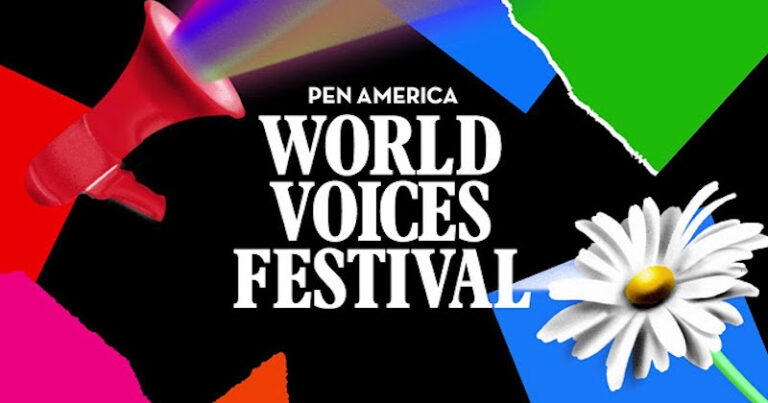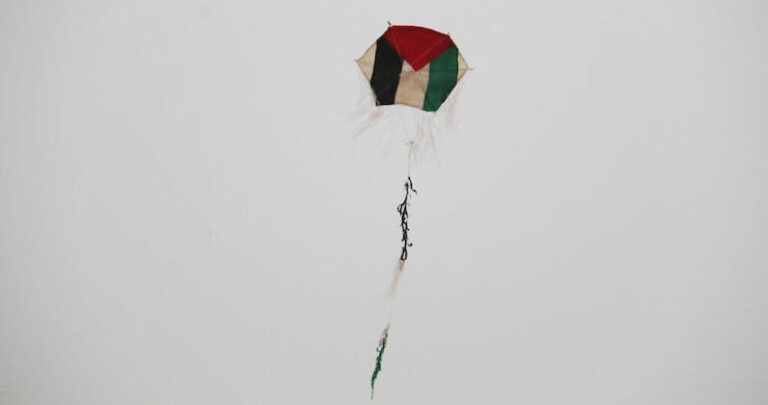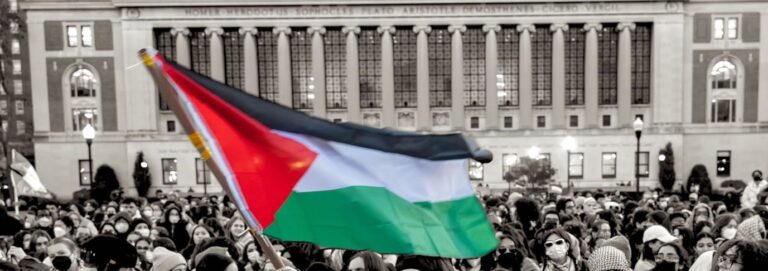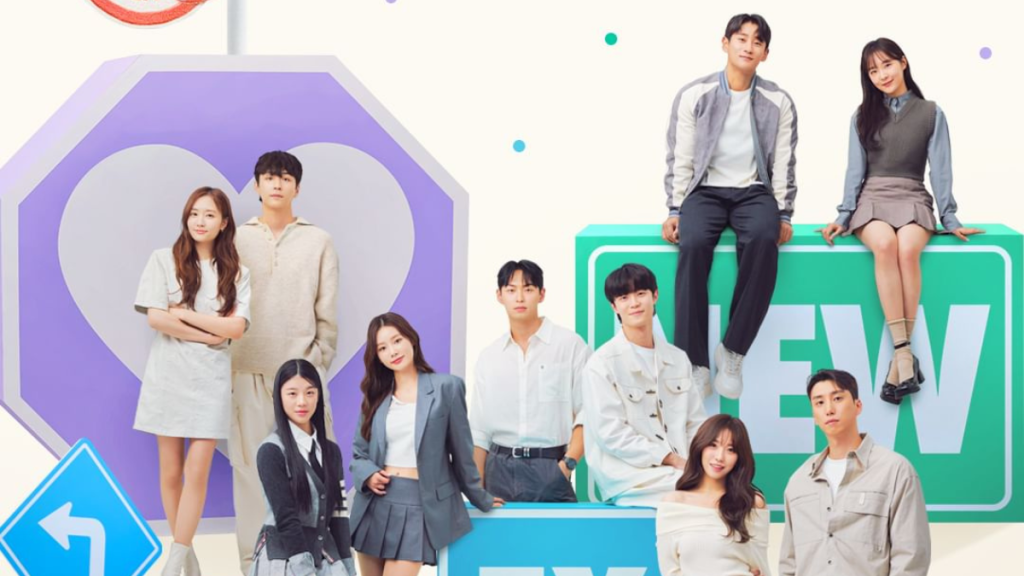Alvina Chamberland interviewed by Rob Doyle.

When I first moved to Berlin a few years ago, my first address was a flat-share on Kottbusser Damm looking onto the canal and a kiosk called Prisma Pavilion that sold decent pizza, pasta and coffee. It was winter and it was lovely. One of my flatmates was Alvina Chamberland — or Alex-Alvina as she was then calling herself. Discovering that we were both writers, we stayed up late in the kitchen discussing literature, as well as life, love and loneliness in the German capital (where Alvina, a Californian who’d moved to Sweden as a teenager, had already lived for several years). Later I moved across the Spree to Friedrichshain, and while I was there, Alvina gave me a typescript of the novel she was then working on. Even at that relatively early stage, the novel was one of the most enjoyable and memorable things I’d read in years. Its mixture of charm, humour, rage, volatility, pathos and fun won me over within a couple of pages, as did its hyper-intimate autobiographical candour and its multi-city setting (Berlin, Reykjavik, Paris). The novel has just been published by Noemi Press as Love the World Or Get Killed Trying. After I received a PDF of the finished work in late 2023 — at which time I was back living in my native Dublin — I interviewed Alvina about it via email. Reading her replies made me feel as though we were picking up where we’d left off the same late-night conversation we’d begun in a flat-share on Kottbusser Damm, several winters prior…
3:AM: You’ve published two novels in Swedish, and Love the World or Get Killed Trying is your first in English. Why did you make the change, and what has the experience been like?
Alvina Chamberland: The answer to that question is quite simple. In October 2014, I left Sweden and it ended up being for good. The two books I released in 2015 and 2018 were both written before my move. As soon as I set foot in New York, and then Berlin, I was no longer surrounded by the Swedish language and I realized that English is my actual first language. I grew up in California until I was 14, and moved to Sweden with my mother when my parents got divorced. I now speak Swedish like a native speaker, but still… My emotional language is English, and I write fiction and poetry with my feelings, my heart, and just a pinch of my mind… I can probably write non-fiction texts equally well in both languages, but for fiction English is just a little bit better. Plus… In a purely pragmatic sense… the audience for Swedish literature is just so much smaller.
3:AM: I first read a draft of the new novel a few years ago, and even then it surprised me that you hadn’t yet found a publisher for it — both in terms of the quality of the writing, and in how its theme of trans experience is so relevant to contemporary culture. Yet it’s taken a while for the novel to find its way. Why do you think this was the case, and how did you keep your spirits up while waiting for a publisher to bite?
AC: Ohh, first of all, thanks for the compliment, and also for all the support during my struggle to get it published. It means a lot to me. I think there are many reasons why it took so long. My former agent, who it took me 1.5 years to find, told me the novel could actually be a tougher sell due to transness being in the zeitgeist. Because it meant that mainstream publishers had already made up their mind on what kind of trans books sell — chronological memoirs and trans-101 non-fiction books — and my book is far from either, though some agents and publishers encouraged me to focus more on my childhood and coming out-stories and market it as a memoir instead of poetic autofiction focusing on a trans woman’s everyday life and struggles and existential deep-dives. Mind you, this was before Torrey Peters’ Detransition Baby came in 2021, which was the first trans literary fiction novel to become a huge bestseller. In both style and form it is much more mainstream than my novel, but still she had to fight to convince one of the big five publishers to get on board since many people thought there wasn’t an audience for it. How wrong they were…
In terms of keeping my spirits up while waiting, the short answer is that I didn’t, I suffered a lot. I suppose, however, being a trans woman has meant I’ve built up a reservoir of perseverance, resilience, tenaciousness, and grit. That’s part of the story, the other part is that it’s just who I am: I have a high threshold for the amount of suffering I can endure. Giving up was never really an option. This means everything to me.
3:AM: I’m not especially well-read when it comes to trans literature, but my impression is that you’ve treated trans experience in a thornier, more confrontational, less well-behaved way than other trans writers. Is this true? How do you see yourself in relation to other trans writers and to trans literature?
AC: Well, trans literature isn’t really my lineage, nor is it the conversation my novel is predominantly involved in… One reason for this is that most trans women authors who’ve been published are lesbians, and lesbian trans girl culture is so different from straight trans girl culture — less traumatized/messy and less hyperfeminine — thus taken more seriously intellectually/artistically. Plus, the canon is full of gay men and empty of trans women, as if we got a lobotomy when we transitioned — it’s just so new that we’re even allowed to be published novelists so there isn’t even really a lineage to speak of yet. I mean my novel is somehow… hmm… magical brutalist existential lyrical autofiction that happens to be about a trans woman’s experiences in the world. The first trans woman author to really inspire me was Camila Sosa Villada from Argentina and I read her after my novel was finished, while recovering from my first trans-related surgery. Otherwise, most of my trans woman inspirations have been found outside of literature, where trans women who desire men are more often found, from Cris Miro to Jenny Hiloudaki to Cristina la Veneno to Sylvia Rivera to Trace Lysette to Paola Revenioti. And within literature most of my inspirations have been cis.
3:AM: You seem to passionately love certain writers: Violette Leduc and Clarice Lispector, to name two of them. What is it about these writers’ work that inspires you?
AC: Where should I start? First of all I think Violette Leduc is one of the most underrated authors there is, and the reason I think she is so overlooked is not predominantly because she’s a woman or bisexual, but because she is so unapologetically feminine. I think she referred to tears as feminine sperm once, and I love that. It just feels like she puts all her messiness, vulnerability, neediness, clinginess onto the page — all the while apologizing for constantly being too much. My god do I relate! And beyond that she is just such a poetic genius. I can only hope that I’ll one day be able to write erotic scenes like she does, or describe the mini-anxieties one experiences while being lonely and observing passersby. Also, it’s funny to me that she got censured for writing too frankly about sex, thus building THAT reputation, while most of her books are actually her moping around complaining about being so alone, oh so alone. As for Clarice Lispector, where do I begin? I have never read a writer who is so exact in describing how an emotion is experienced within, the details of the interior life, the shock it experiences upon meeting the exterior world, often crashing against it. I suppose not all people relate to this as strongly, but I most certainly do. She has made me cry more times than any man, although sometimes the reason behind my tears has been to purge some form of heartbreak.
Another writer who is always in the background is Ingeborg Bachmann, whose novel Malina continues to shake me to the core every time I reread it.
3:AM: You’re the very opposite of a chilly, emotionally reserved writer. Your style suggests an irrepressibly passionate emotional life, an incessant surge of ecstatic, adoring, bewildered or fraught feeling that will burn you up if you don’t write it down. There’s a lot of humour in there too, a playful charm that keeps the reader with you even when the experiences you describe are so often painful or bleak. Tell me about your style, and what you think about your own literary voice.
AC: Thank you for this question. It’s true really. You know, I wasn’t one of these people who always wrote; rather I became a writer when I was 19, and fell madly, and unrequitedly in love for the first time — that was the moment I realized my overflow of emotions was too much for me or anyone else to handle, and the pad of paper was the only outlet that wouldn’t end up destroying me. Since then I have found other muses than just the men I’ve fallen in love with, but they are still number one in that department. I think one of my favourite literary forms, one that I fear is dying out in today’s day and age of TikTok, Instagram, and WhatsApp, is the passionate love letter. I still write them, and if the man I wrote them to never responds, I can at least use them as literature. I guess the reason I seem to always end up in love affairs with Greek straight men is that we often share the same flair for passion and drama. None of them have ever told me that I’m too intense, rather they LIKE IT, which is such a relief!
My point is, I guess, that I don’t really have a premeditated style, although I’ve certainly been inspired by many other authors; rather I just write the way that I feel and make sure to keep the rawness and vulnerability instead of polishing it. The most important thing for me is to make readers feel something, after that I want them to think, and thus ask questions that are rarely presented in party line political pamphlets. The sense of humour is part of all this — I love the term gallows humour — humour that comes from the gallows, thus humour that comes from great suffering. Straight trans women always have a wicked sense of humour, I can laugh hysterically about things with them that would have most people tilting their head to the side and asking “are you okay?” It’s a survival strategy, a way to cope with the harshness of the world, and it is my duty as a trans woman author to communicate this with my readers, not to make things lighter, but to speak about the heaviness in my own language.
3:AM: To what extent do you believe that yours is or isn’t a novel written for trans readers? It has a hard, polemical edge, a touch even of the manifesto. I’m a straight guy and, while reading it, I sometimes felt I was being corralled into the category of enemy. For instance, your narrator tells us: the straight men who “respect” trans women rarely want to fuck us, and the straight men who want to fuck us rarely respect us. You’re damned if you do, damned if you don’t! Who do you hope or intend your readership to be?
AC: Straight men are my lovers, not my enemies  But so many experiences and so many social structures make this relationship so fraught with trauma and difficulties. I wrote that line, and 95 percent of the novel, in a time when I wasn’t as far along in my transition as I am now. I was not passing, and most of the straight men I was attracting were so-called “tranny chasers”, men who fetishize and hypersexualize trans women in secret; who feel a stronger lust for us than for cis women, but who don’t respect us. The last 3-4 years I’ve attracted more and more “regular” straight guys who have not fetishized me, and seen me fully as a woman, but have still had trouble seeing me as more than a one time thing, and still grappled with what their desire for me means… I wish in the future that their desire for me means nothing, and that the only difference between straight men’s desire for me and straight men’s desire for a cis woman will be that I can’t bear biological children — thus the hindrance and stigma towards openly being in a relationship with me won’t be bigger than being with a cis woman who cannot bear children due to fertility issues (or simply because she doesn’t want kids).
But so many experiences and so many social structures make this relationship so fraught with trauma and difficulties. I wrote that line, and 95 percent of the novel, in a time when I wasn’t as far along in my transition as I am now. I was not passing, and most of the straight men I was attracting were so-called “tranny chasers”, men who fetishize and hypersexualize trans women in secret; who feel a stronger lust for us than for cis women, but who don’t respect us. The last 3-4 years I’ve attracted more and more “regular” straight guys who have not fetishized me, and seen me fully as a woman, but have still had trouble seeing me as more than a one time thing, and still grappled with what their desire for me means… I wish in the future that their desire for me means nothing, and that the only difference between straight men’s desire for me and straight men’s desire for a cis woman will be that I can’t bear biological children — thus the hindrance and stigma towards openly being in a relationship with me won’t be bigger than being with a cis woman who cannot bear children due to fertility issues (or simply because she doesn’t want kids).
Also there is this type of correct, “progressive” middle class Northern European soft boy that would never date or have sex with a trans woman: he respects us too much. As if a straight boy’s nail polish is painted in the colours of the transphobic flag.
However, answering your question — the novel is not particularly targeted towards trans women, indeed most of the novel rather focuses on universal issues such as love, longing, death, what it means to fully feel one’s emotions and really LIVE. When the novel gets more specific perhaps it is a lot about straight men and trans women, perhaps they are a bit of a target audience for me, the ones I hope most to connect with and/or make think. A certain strain of feminism might vilify me for considering straight men to be a target audience, but so be it, it’s the same strain of feminism that will probably vilify me for being half-naked on my book cover — it’s not a strain of feminism I belong to.
3:AM: Insofar as yours is a polemical novel, what effect do you hope it will have?
AC: I want people to connect with my humanity. Basically, I find the novel to be so brutally human, flaws and perks and all — and that is something I hope all readers, regardless of their structural position, can identify with. This is how I hope to build bridges between me, a trans woman, and my readers, usually not trans women. Not through pedagogically explaining “this is a trans woman’s life”, but rather through exposing my heart my brain and most of my body (on the cover, lol) and saying I am just as human and multidimensional as you are, and don’t you dare oversimplify or stereotype my reality! I AM WOMAN HEAR ME ROAR, haha.
3:AM: The novel is set variously in Iceland, Paris and Berlin, and you too have moved around a fair bit in your life. You’ve lived in Berlin now for several years. How has that city in particular influenced your writing? Do you feel at home there? And how has living in very different cultures at various periods in your life shaped you as a writer?
AC: I think when you are a straight trans woman you often get a crash course in a city’s vibe as soon as you set foot there, because the city experiences you and gazes at you, before you even have time to experience it and see it for yourself. This is something that really has shaped me as a writer, and more than that, has shaped what I actually experience, which in turn is what I write about. I often like to talk about how men in Northern Europe, contrary to popular belief, are much more transphobic with their desire than men in Southern Europe, the Middle East, and Latin America — where there’s more trans history, and where men aren’t quite so “correct”, closed-minded, and protestant about their sexuality. Ireland is different though, but I like to call Ireland “The Italy of Northern Europe”. I, and many straight trans girls with me, are kind of done with Berlin, it’s as if German men can’t see us as women, even if we’re super pretty and passing and have perfect vaginas, they have to see us as something other, exotic, to fetishize and have sex with once on a toilet in Kitkat club or, if they are soft boys, not at all (because what if someone thinks they are fetishizing us?)… I’m moving to Greece soon, and there are many reasons why I feel more at home there: the city has more of an emotional, passionate and chaotic pulse, in contrast to Germany’s logic, the culture kind of combines certain aspects of both loud, boisterous US American culture, and severe, serious Swedish culture, and the weather and seaside and some of the plants remind me of the California I grew up in. Lastly, men in general just treat me like I’m a woman, an attractive woman, and sure, most of them are hesitant to introduce me to their mother, but this is still preferable to the way I get treated by German or Swedish men. The struggle is real everywhere, and nowhere is paradise for a trans woman. The main perk I find with Northern Europe is that the economy is richer, so it’s easier to find work and get surgeries paid for by the health insurance.
3:AM: Paris seems to be the city where the narrator of Love the World or Get Killed Trying has the most consistently unpleasant and dangerous experiences. Has this been your experience of that city?
AC: I’ll try to keep this answer short — I’ve been to Paris three times since I started transitioning. Two times when I was far from passing as a cis woman, and once when I passing much more. When I was there earlier in my transition, i.e. when I wrote the book it was this crazy mixture of vulgar sexual invites and violent, hateful outbursts. It felt unmanageable and so unlivable. The last time I went there for a week, I tried to count every time a man hit on me flirtatiously or sexually — it was around 300 times and it was exhausting. At the same time, on that trip I only counted one hateful incident, when a guy started flirting with me, realized I was trans, and got mad. Basically the city felt safer than when I was not passing as much, as sexual harassment is easier to handle than pure violent hatred, but still far from safe. I like to call Paris the sexual harassment capital of the world, but I think it might be in competition with Naples and Rome for that title… At the same time, I also love and loved Paris — the feeling I get in the few moments when I am left alone, or when I’m in the mood to flirt and enjoy the attention.
3:AM: Tell me about your relationship with autobiographical writing. Do you think you’ll always write in this immediate, first-person, ‘this is the inside of my skull’ kind of style, or can you imagine writing a more traditionally decked out novel of imaginary characters, a plot and so on?
AC: At the moment I think my brain is limited to autofiction, maybe because I experience life so intensely, emotionally, that it’s hard for me to step that far outside of myself. I just don’t see how I’d manage to write a novel in that way. Perhaps I could do what Sylvia Plath did in The Bell Jar and change my name to Aurora, Isabella, or Estelle and pretend it was a traditional novel, but that’s about it… On the other hand if I change as much 20 years from now as I’ve changed in the last 20 years, who knows?
 Rob Doyle by Katie Freeney
Rob Doyle by Katie Freeney
ABOUT THE INTERVIEWER
Rob Doyle is the author of four internationally acclaimed books: Threshold, Autobibliography, This Is the Ritual, and Here Are the Young Men, which has been adapted for film. His work has been translated into several languages and nominated for various prizes. His writing has appeared in the New York Times, Observer, Dublin Review and many other publications, and he edited the anthologies The Other Irish Tradition and In This Skull Hotel Where I Never Sleep. Rob Doyle was born in Dublin.











 Bengali (Bangladesh) ·
Bengali (Bangladesh) ·  English (United States) ·
English (United States) ·